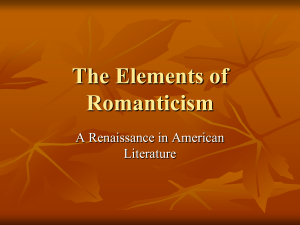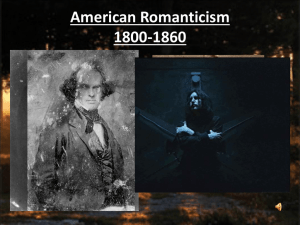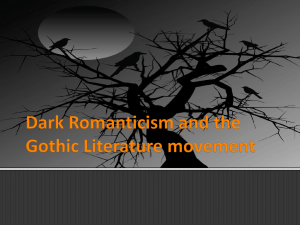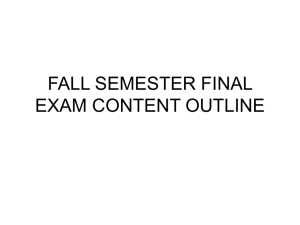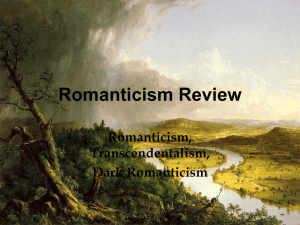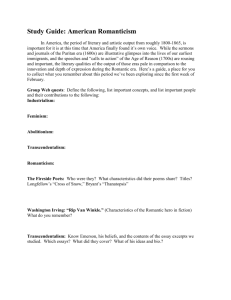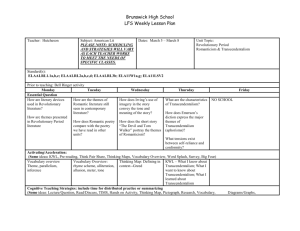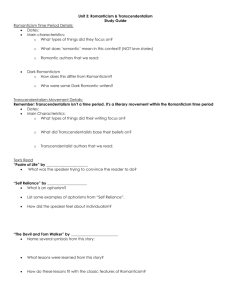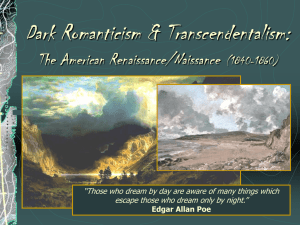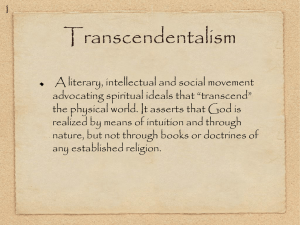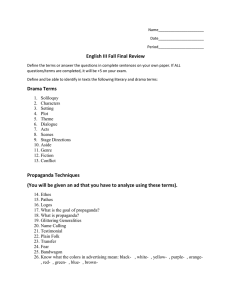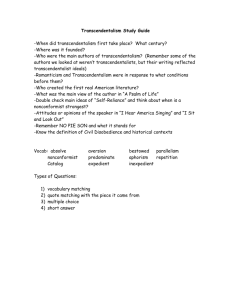11th grade ELA Unit 3
advertisement
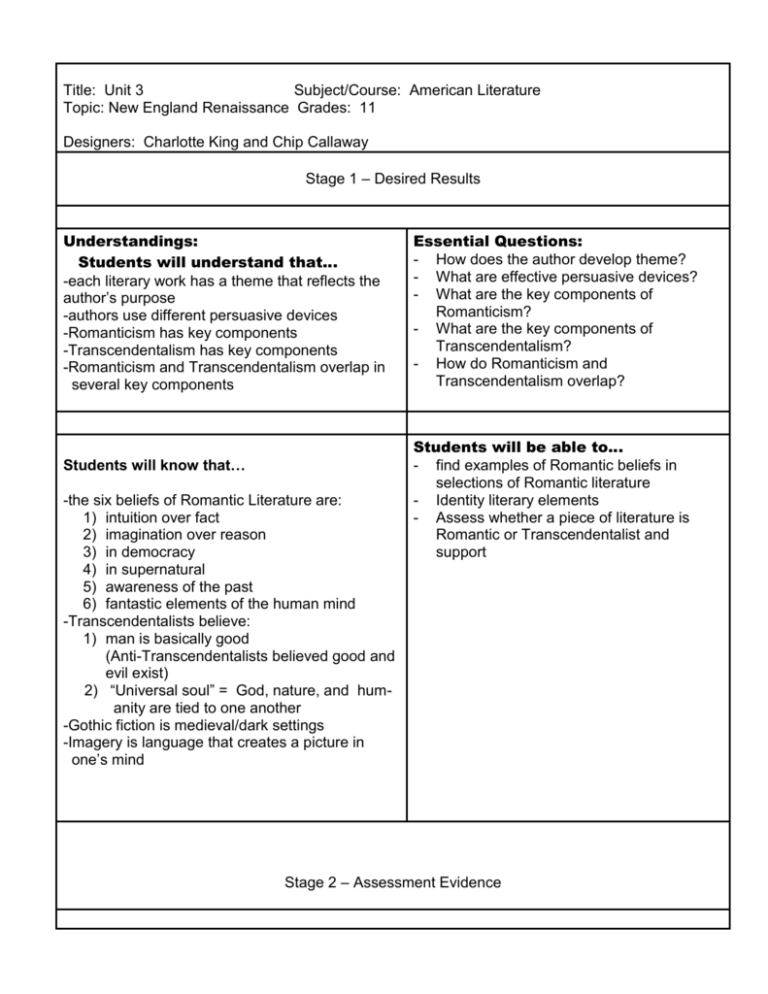
Title: Unit 3 Subject/Course: American Literature Topic: New England Renaissance Grades: 11 Designers: Charlotte King and Chip Callaway Stage 1 – Desired Results Understandings: Students will understand that… -each literary work has a theme that reflects the author’s purpose -authors use different persuasive devices -Romanticism has key components -Transcendentalism has key components -Romanticism and Transcendentalism overlap in several key components Students will know that… -the six beliefs of Romantic Literature are: 1) intuition over fact 2) imagination over reason 3) in democracy 4) in supernatural 5) awareness of the past 6) fantastic elements of the human mind -Transcendentalists believe: 1) man is basically good (Anti-Transcendentalists believed good and evil exist) 2) “Universal soul” = God, nature, and humanity are tied to one another -Gothic fiction is medieval/dark settings -Imagery is language that creates a picture in one’s mind Essential Questions: - How does the author develop theme? - What are effective persuasive devices? - What are the key components of Romanticism? - What are the key components of Transcendentalism? - How do Romanticism and Transcendentalism overlap? Students will be able to… - find examples of Romantic beliefs in selections of Romantic literature - Identity literary elements - Assess whether a piece of literature is Romantic or Transcendentalist and support Stage 2 – Assessment Evidence Performance Tasks: Interview someone with a job you are interested in; make an oral report about the findings. Collaborative learning: Research role of women in 1800’s or a famous woman of the time period. Role play interview with Edgar Allan Poe with emphasis on “Fall of the House of Usher”. Key Criteria: Elements of Romanticism Elements of Transcendentalism Elements of Anti-Transcendentalism Elements of Poetry Elements of Non-fiction Other Evidence: Quizzes Tests Group interaction Collaboration Work Samples Stage 3 – Learning Plan Learning Activities: Oral presentations Role-Play Daily Language Practice (SAT prep) Reading Comprehension Activities
